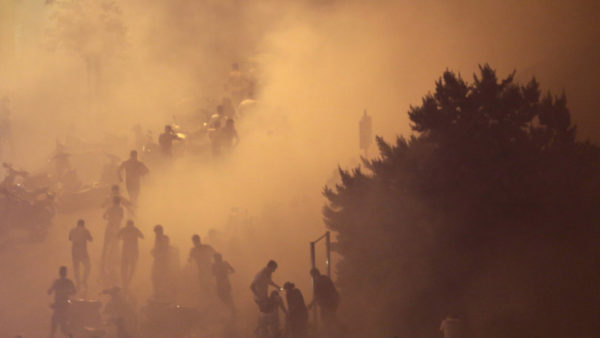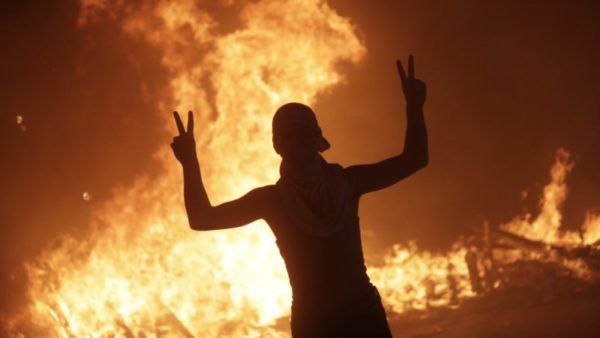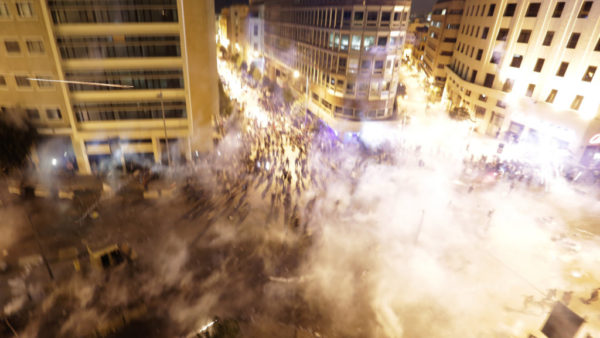
By Georgi Azar
For the second night running, what started out as a peaceful gathering of Lebanese voicing their discontent at the decades-old political class descended into chaos as night fell.
The actions of the majority, as we have become accustomed to seeing, were overshadowed by the actions of the few.
Lebanese have been irked by a series of austerity measures aimed at papering over the cracks of longlasting incompetence, blatant corruption and officials’ mastery at deflecting blame.
The straw that finally broke the camel’s back was a proposed tax on WhatsApp calls.
As clashes between riot police and a group of protestors on the front lines in Riad al Solh Square flared up, tear gas began raining down on the huge crowd, setting the stage for what was to come.
The anger, frustration and resentment are justified but the carnage that ensued is not. Beirut was transformed into a warzone, with its main streets becoming battlegrounds between hooded thugs, for lack of a better term, and police and army members. Many of the demonstrators hurled rocks and flares, setting up barricades from burning rubish containers and drawing sharp responses from the other side.
Two buildings were set ablaze and a number of banks were broken into. Glass, debris, and ash covered the streets as tv cameras broadcast the disconcerting scenes.
The movement, time and time again, is being highjacked by a group of sketchy dissidents, with ulterior motives at the very least.

Peaceful demonstrators were caught in the crosshairs, with police arresting protestors at random. Passerbys were also entangled in the chaos, with officers caught beating individuals in disturbing scenes. A number of arrested demonstrators reported severe beatings at the hands of officers, describing appaling holding conditions.

There was enough blame to go around, with havoc tearing into Beirut’s once-prosperous neighborhoods.
The damage is estimated in the millions of dollars, at a time when Lebanon is reeling under the burden of massive public debt with dollar liquidity hard to come by.
Armed fracases are already breaking out in a number of areas, with injuries and deaths adding fuel to fire.
Public perception of the movement is also being tarnished, both locally and abroad. The decentralized, leaderless and ununified campaign should not suffer a similar fate to that of its 2015 predecessor.
“We’re not thugs, we’re university students. These thugs don’t represent us, we came down in thousands while they were barely a hundred,” Ghida Farhat, a clearly shaken protester, told Marcel Ghanem in an emphatic speech.
“Young, old, men and women gathered in Beirut and don’t you dare change the narrative of this peaceful movement,” she cried out.
History is filled with coups, rebellions and civil wars. Violent riots, triggered by specific catalysts, have in certain instances, forced change after years of neglect by politicians, media, and the general public.
Given the delicacy of Lebanon’s social fabric with its sectarian wounds yet to fully recover, peaceful, active, sustained and civil disobedience is the only available avenue for change.
AN NAHAR

Leave a Reply
You must be logged in to post a comment.